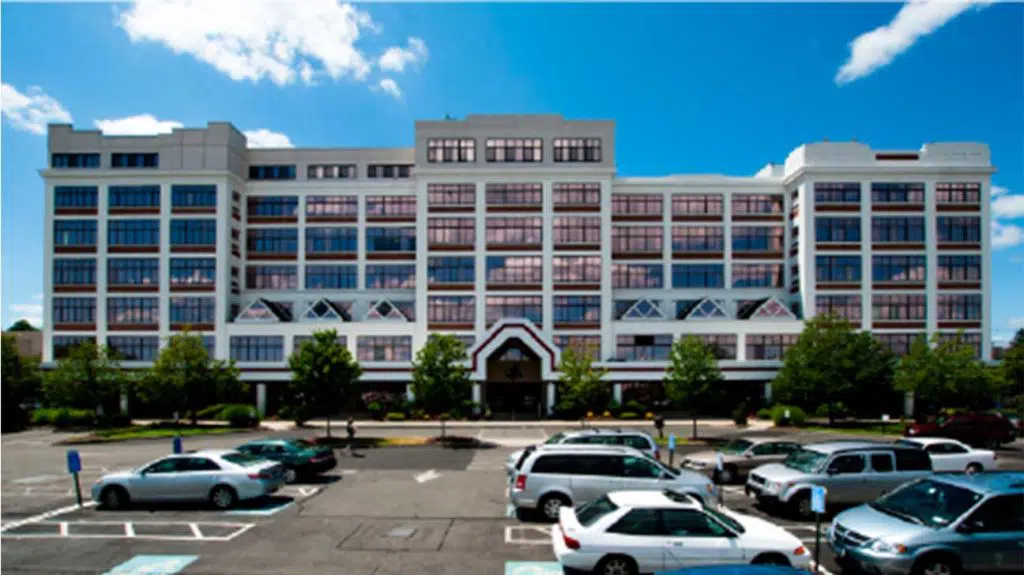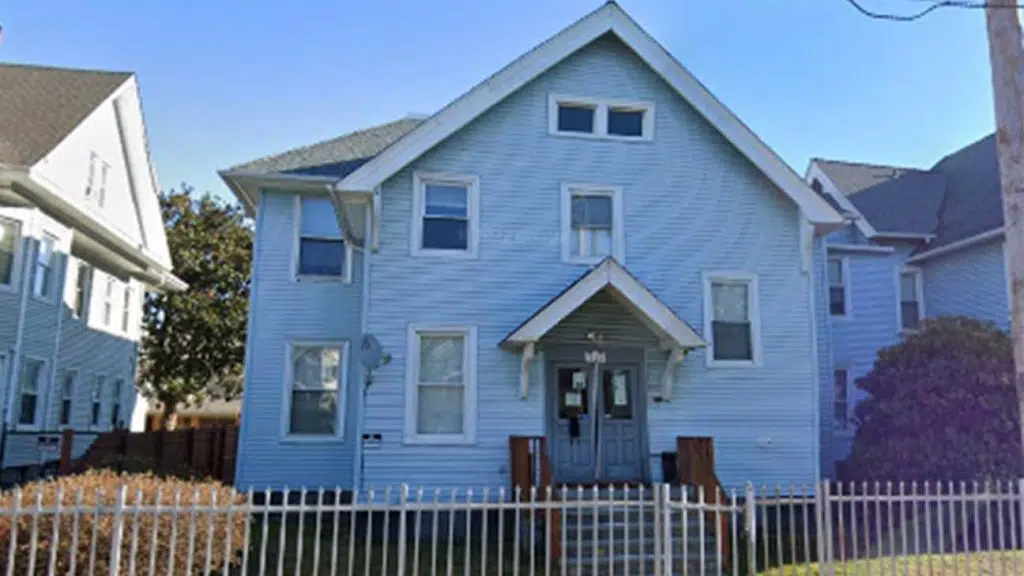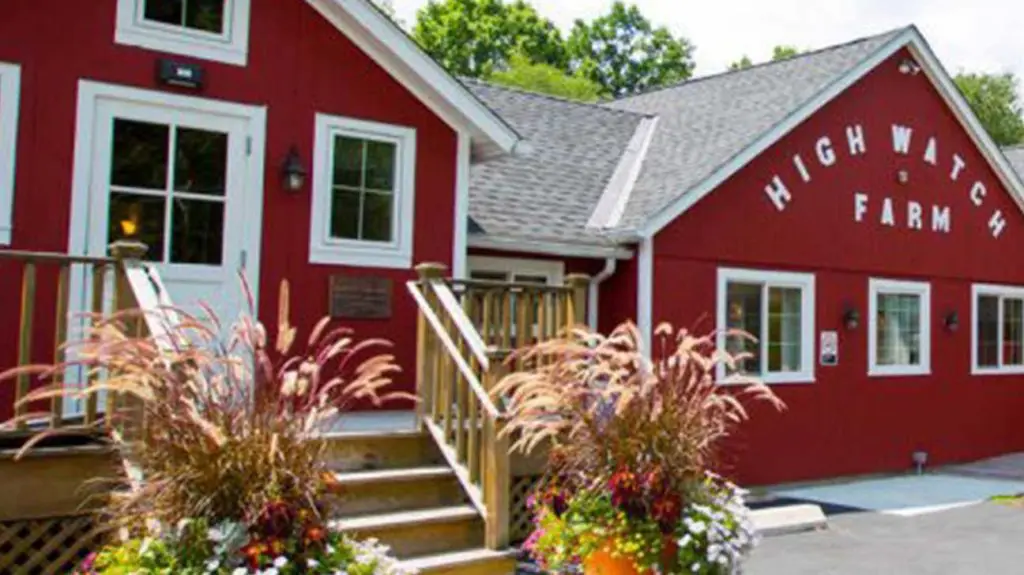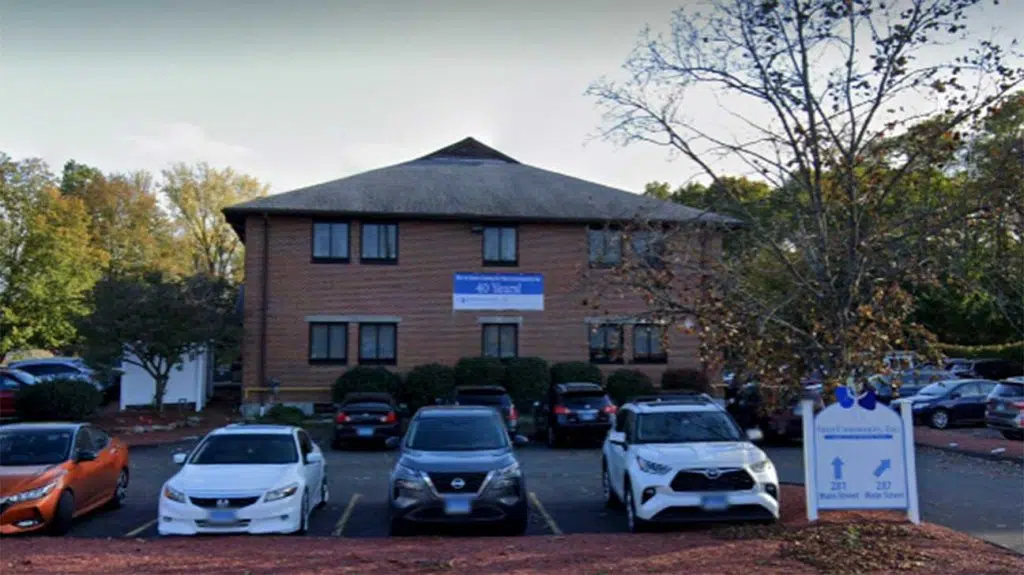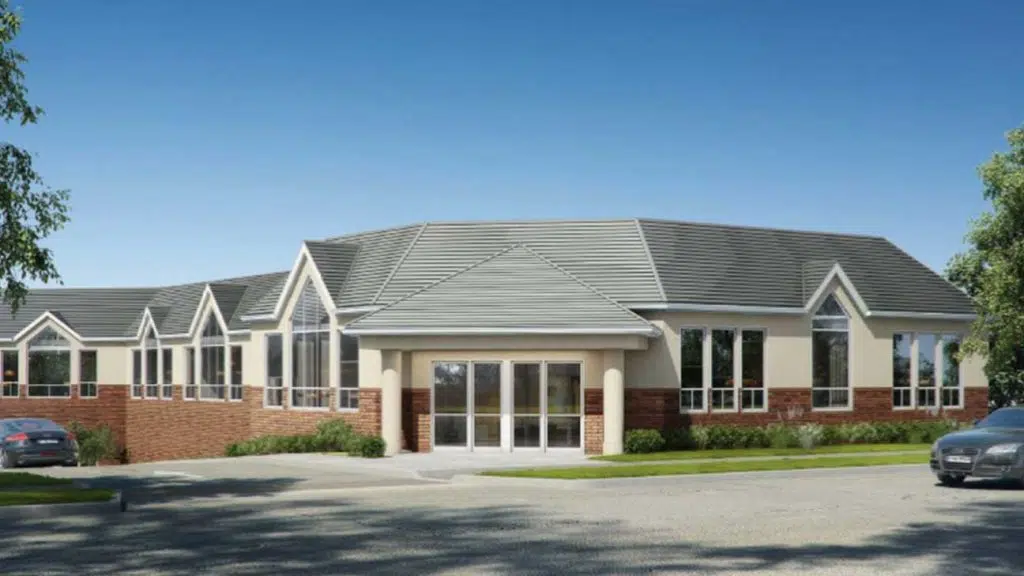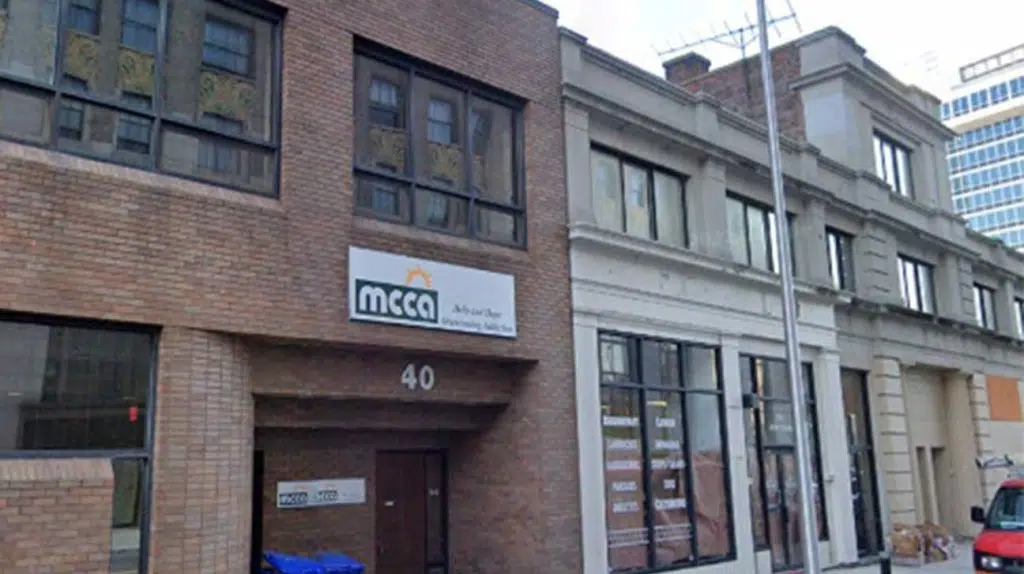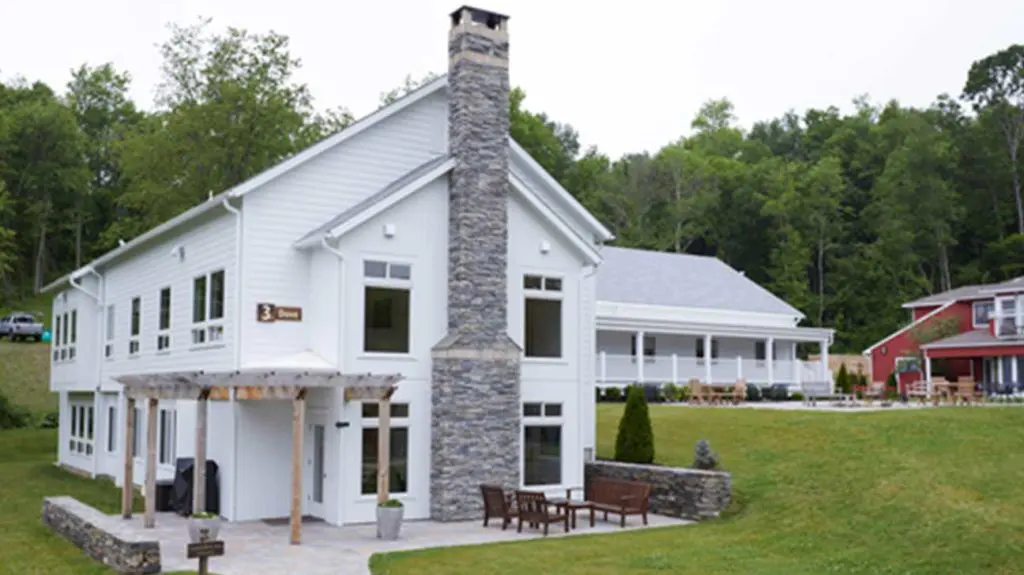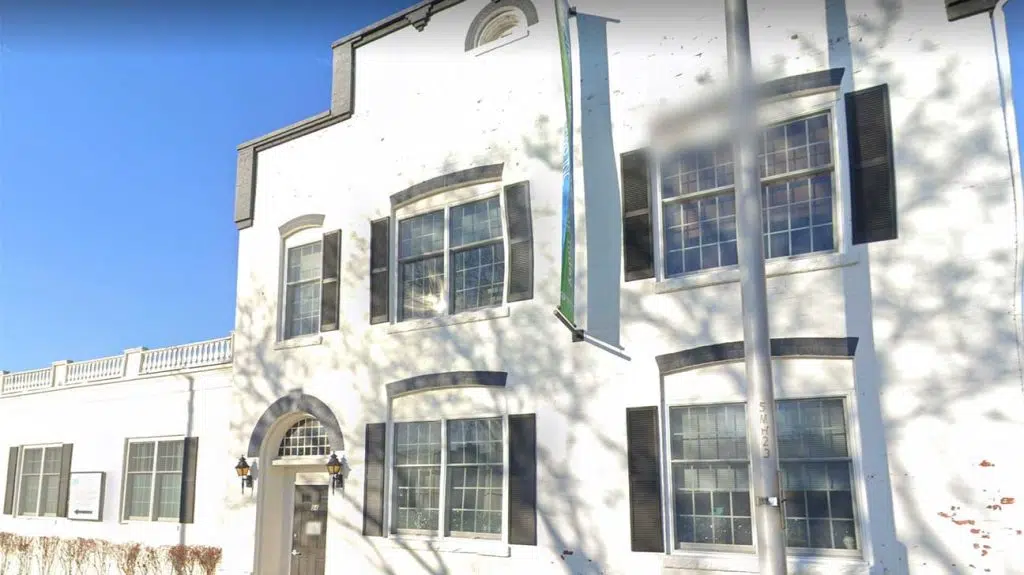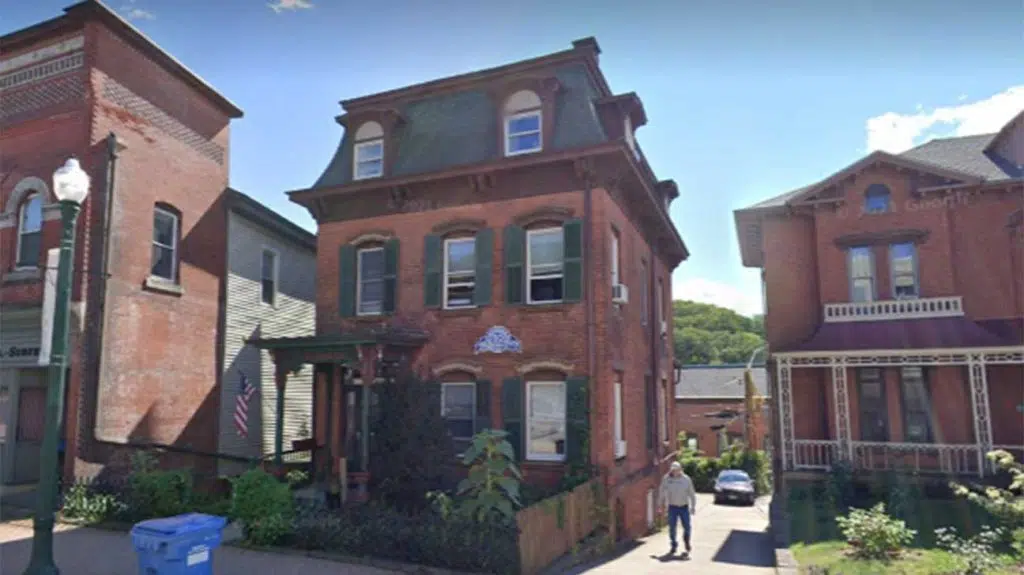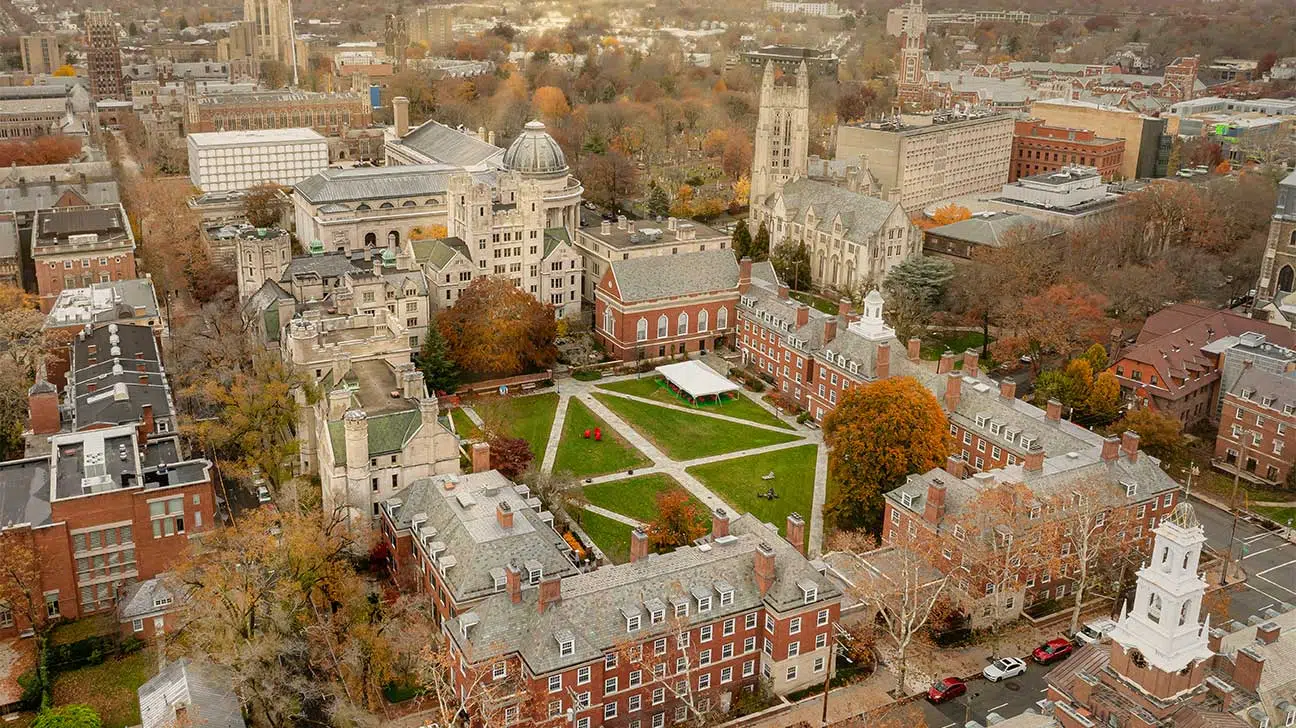
Long-term residential treatment programs in Connecticut are ideal for people with moderate to severe substance use disorders who are seeking recovery.
These behavioral health facilities will typically offer treatment plans that emphasize services such as detoxification, medication-assisted treatment (MAT), dual diagnosis treatment, and counseling.
List Of Connecticut Long-Term Drug Rehab Programs
Below you will find a list of the most reputable long-term residential rehab programs in Connecticut. They were chosen based on their top qualifications.
Marks of quality include:
- accreditations
- positive client testimonials
- high Google ratings
- certifications and affiliations
- awards and other accolades
1. APT Foundation, New Haven, Connecticut
APT Foundation offers long-term residential treatment services in New Haven, CT. Treatment options include cognitive behavioral therapy (CBT), motivational interviewing, and more.
Top features of this drug rehab center include:
- Commission on Accreditation of Rehabilitation Facilities (CARF) accreditation
- licensure from the Connecticut Department of Public Health
- a 3.9-star Google rating
Location and contact information:
54 E. Ramsdell St.
New Haven, CT 06515
(203) 781-4600
2. Chemical Abuse Services Agency (CASA), Bridgeport, Connecticut
CASA offers a long-term residential rehab program in Bridgeport, CT, that provides both evidence-based and holistic treatment services.
Addiction treatment options include:
- medication-assisted treatment (MAT) using methadone and buprenorphine
- supportive residential services
- sober living
- day treatment
- case management and wellness services
This treatment center is backed by CARF accreditation, positive client testimonials, and high Google ratings.
Location and contact information:
690 Arctic St.
Bridgeport, CT 06608
(203) 339-4112
3. Connecticut Renaissance, Waterbury, Connecticut
This residential treatment program serves men 18 years of age and older referred by the Connecticut Court Support Services Division. Lengths of stay here are typically 90 days.
Drug and alcohol addiction treatment services include:
- individual and group therapy
- self-help meetings
- relapse prevention
- aftercare services
Connecticut Renaissance features CARF accreditation and a 4-star Google rating.
Location and contact information:
466 W. Main St.
Waterbury, CT 06702
(203) 591-8010
4. High Watch Recovery Center, Kent, Connecticut
High Watch Recovery Center offers extended care addiction treatment for up to 100 days. Treatment approaches may include CBT, relapse prevention, 12-step facilitation, and more.
The best qualities of this rehab facility include Joint Commission accreditation, LegitScript certification, and membership in the National Association of Addiction Treatment Providers (NAATP).
Location and contact information:
62 Carter Rd.
Kent, CT 06757
(860) 927-3772
5. InterCommunity Health Care, Hartford, Connecticut
Here, clients can find intensive drug and alcohol treatment in Hartford, CT. This program features Joint Commission accreditation and positive client testimonials.
Drug rehab treatment services may include:
- long-term and short-term residential care
- CBT
- MAT for opioid drug addiction
- trauma-related counseling
Location and contact information:
500 Blue Hills Ave.
9th Fl.
Hartford, CT 06112
(860) 569-5900
6. Liberation Programs, Stamford, Connecticut
This 90-day residential treatment program in Stamford, CT, provides MAT for prescription drug addiction, CBT, counseling services, and dual diagnosis treatment for co-occurring disorders.
Liberation Programs is supported by the United Way of Western Connecticut and is backed by CARF accreditation.
Location and contact information:
119 Main St.
Stamford, CT 06901
(203) 851-2077
7. Midwestern Connecticut Council of Alcoholism (MCCA), Multiple Locations
MCCA provides long-term and gender-based inpatient treatment for substance use disorders.
Treatment options by location:
- men’s residential treatment in Sharon, CT
- individual and group counseling
- women’s substance use treatment in Kent, CT
- 12-step programs such as Alcoholics Anonymous
This addiction recovery program is backed by CARF accreditation and licensure from the Connecticut Department of Public Health.
Location and contact information:
149 W. Cornwall Rd.
Sharon, CT 06069
(860) 672-6689
8. Newport Academy, Bethlehem, Connecticut
Newport Academy is a gender-specific treatment facility for people ages 12 to 18 who have depression, anxiety, substance abuse, and trauma-related issues.
Treatment options include:
- long-term residential treatment
- partial hospitalization programs (PHP)
- intensive outpatient programs (IOP)
- short-term inpatient care
Newport Academy is accredited by the Joint Commission and features excellent testimonials from past clients.
Location and contact information:
64 Double Hill Rd.
Bethlehem, CT 06751
(877) 820-6371
9. Perception Programs, Willimantic, Connecticut
This trauma- and gender-informed residential program for women focuses on relapse prevention, healthy relationships, and life skills. On average, residents stay in the program for three to six months.
Top qualities of Perception Programs:
- Joint Commission accreditation
- a 3.4-star Google rating
- positive testimonials from past clients
Location and contact information:
54 North St.
Willimantic, CT 06226
(860) 450-0151
10. SCADD, Lebanon, Connecticut
This long-term treatment program for men provides group therapy, individualized treatment planning, medication management, and more. The usual length of stay at this 100-bed facility is 90 days.
The best qualities of SCADD include CARF accreditation, partnership with the United Way, and a 3.5-star Google rating.
Location and contact information:
37 Camp Mooween Rd.
Lebanon, CT 06249
(860) 889-1717
What To Expect During Long-Term Inpatient Treatment In Connecticut
Upon entering a substance use treatment program, a person will typically start their recovery with a medically monitored detox program.
Detoxification will rid the body of all traces of drugs and alcohol while also helping to manage any uncomfortable and potentially dangerous withdrawal symptoms that may arise.
After detox is complete, clients interested in continuing their recovery can keep receiving counseling and support in a highly monitored residential setting.
FAQs For Long-Term Addiction Treatment Centers In Connecticut
See below for more useful information on long-term inpatient addiction treatment providers.
How Long Will It Take To Complete A Long-Term Recovery Program?
Typically, long-term residential programs will last anywhere between 60 days to six months or longer, depending on the severity of the addiction.
How Can I Pay For Long-Term Drug And Alcohol Rehab Services?
Treatment programs can usually be paid for using private health insurance, Connecticut Medicaid, Medicare, or Tricare (military insurance) coverage.
Additionally, many facilities may accept scholarships or government grant funds to help low-income people get the help they need.
Are There Long-Term Recovery Programs Specifically For Teens?
Yes, there are many rehab centers in Connecticut that provide services designed specifically for the needs of adolescents, teens, and young adult clients.
Read about drug and alcohol rehab facilities for teens.
Find Long-Term Substance Use Disorder Treatment
If you or your loved one are looking for long-term recovery centers in Connecticut, call our helpline today. Our team can help you seek treatment to conquer alcohol and drug addiction.
Published on August 12, 2022
Addiction Resource aims to provide only the most current, accurate information in regards to addiction and addiction treatment, which means we only reference the most credible sources available.
These include peer-reviewed journals, government entities and academic institutions, and leaders in addiction healthcare and advocacy. Learn more about how we safeguard our content by viewing our editorial policy.
- National Institute on Drug Abuse (NIDA)
https://nida.nih.gov/publications/principles-drug-addiction-treatment-research-based-guide-third-edition/principles-effective-treatment - National Institute on Drug Abuse (NIDA)
https://nida.nih.gov/publications/drugs-brains-behavior-science-addiction/drug-misuse-addiction - Substance Abuse and Mental Health Services Administration (SAMHSA)
https://findtreatment.gov/

